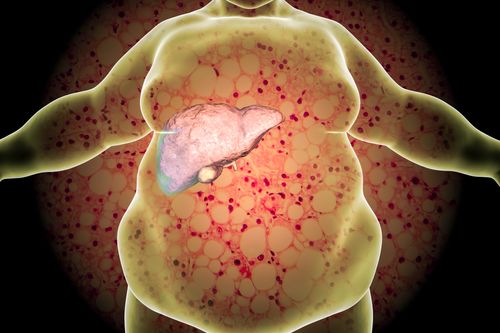10 Health Risks of Being Overweight or Obese

Dr.Poonam Sharma
May 25, 2021

Dr.Poonam Sharma
May 25, 2021
Overweight is not an appearance issue; it is a medical concern. Overweight is a condition in which a person has an unhealthy distribution of body fat. Excess body fat increases strain on the bones and organs and causes changes in hormones and metabolism. People with a body mass index greater than 30 are classified as obese.
Obesity affects a person’s health seriously and leads to many problems like heart disease, diabetes, and sleep apnea. It also affects mood, energy level, breathing, healthy sleep, and joints.
Having a couple of extra pounds on your body than the ideal weight is not overweight. But when people keep up, the pattern of eating more calories than required may lead to the buildup of fat in their bodies. Our body reaches a saturation point, after which it creates adverse effects on the body. Obesity is the word used for those at a greater risk of developing weight-related health problems.

An increase in body weight is related to genetic, metabolic, behavioural, and hormonal influences. Consuming more calories than required and not burning the calories through normal daily activities and exercise leads to fat storage.
Obesity impacts the quality of life by affecting both mind and body with increased risk for many health conditions and serious diseases.
Health problems associated with Overweight:

Excess body weight causes wear and tear in the joints and leads to arthritis. Arthritis is common among obese persons.

Bone deformity on lower legs is called Blount disease. The inward turning of the bones worsens over time. This is more common among kids and teens.
Sleep apnea is a major problem with obese children and adults. It is a condition in which people stop breathing temporarily while sleeping and leads to heart problems. It makes people feel tired and reduces their ability to concentrate and learn.

High blood pressure is a strain on the heart. The arteries and heart undergo more stress and lead to heart attack and related problems. High blood pressure is also called hypertension and is more common in obese teens.

High cholesterol, low HDL, and high triglyceride levels in the blood are an indication of abnormal blood lipid levels. It will increase the risk of heart attack and stroke. As the person gets older, the chances of risk are more.

Fat accumulation in the liver reduces its function. It leads to scarring, inflammation, and permanent liver damage.

Gallstones are formed in the gallbladder when bile salts accumulate. Bile salts harden and become stones. These stones will cause pain and require surgery to remove them.

When there is excess fat in the body, insulin becomes less effective, and the rate of conversion of glucose into energy gets reduced. To maintain normal blood sugar, we need more insulin.

Depression is a mental state where people have lower self-esteem. Obese people can suffer from depression and often feel discomfort with society.

Girls may miss periods or not get their periods if they are obese. Elevated testosterone levels in girls can affect ovulation. The side effects of this condition include acne, hair growth, and baldness. PCOS is also associated with type 2 Diabetes. Overweight women may have fertility issues and PCOS.
Obesity affects your overall quality of life. It reduces public appearances and increases the chances of discrimination.
We can reduce our body weight by following a healthy lifestyle with more activity, exercise, and a healthy diet.
Start with walking as the first step to reducing body weight. Gradually increase the time from 30 minutes to 60 minutes per day. Upgrade yourself from slow walking to fast walking, and you can try swimming and jogging at a later stage.
Eating a healthy diet, along with exercise, is the best way to reduce your body weight healthily. Consult a dietitian and get a customized health plan and follow it. Avoid high-calorie food and consume more low-calorie food. Eat more vegetables, fruits, and whole grains. Limiting alcohol and sweets is a must for weight loss. Limit your snacks and eat three regular meals. Have some self-control to consume sweets and high-calorie foods only once a day. This will help you stay motivated in the long run and help you avoid the health risk of being overweight.
Identifying what you eat, how you eat, and when you eat will help you develop the best strategies to reduce body weight. You should identify situations that trigger unlimited food consumption and avoid them. Avoid things that will make you lose control and increase more food intake than required.
Bodyweight monitoring is the best feature that keeps people motivated to shed more weight. You can measure your weight and can confirm whether the efforts are helping to reduce body weight or not.
Along with the above factors, try to follow a healthy diet plan throughout the week and even on weekends for better results.
Overweight and obesity affect the physical and mental well-being of individuals. Almost one in three adults is overweight, and one in ten is obese. Regular exercise and a healthy diet are the only two ways to reduce body weight and the health risks of being overweight.
A. Body Mass Index is the measure of the body’s fat based on the height and weight of men and women. It is an indicator of body fat and not the actual measure.
A. The BMI ranges between A) 18.5 – 24.9 – healthy individuals, B) 25.0 – 29.9 – overweight, C) > 30.0 – obese.
A. Variation in cholesterol level, blood sugar level, age, gender, family history of heart disease, waist circumference, menopause status, physical activity level, and smoking habits are associated with health risk.
A. Not all exercise and diet plans reduce body weight. They will vary from person to person. It is always best to consult a dietician and a health coach to monitor your body weight and help you in weight loss.


Thanks for sharing needed information.